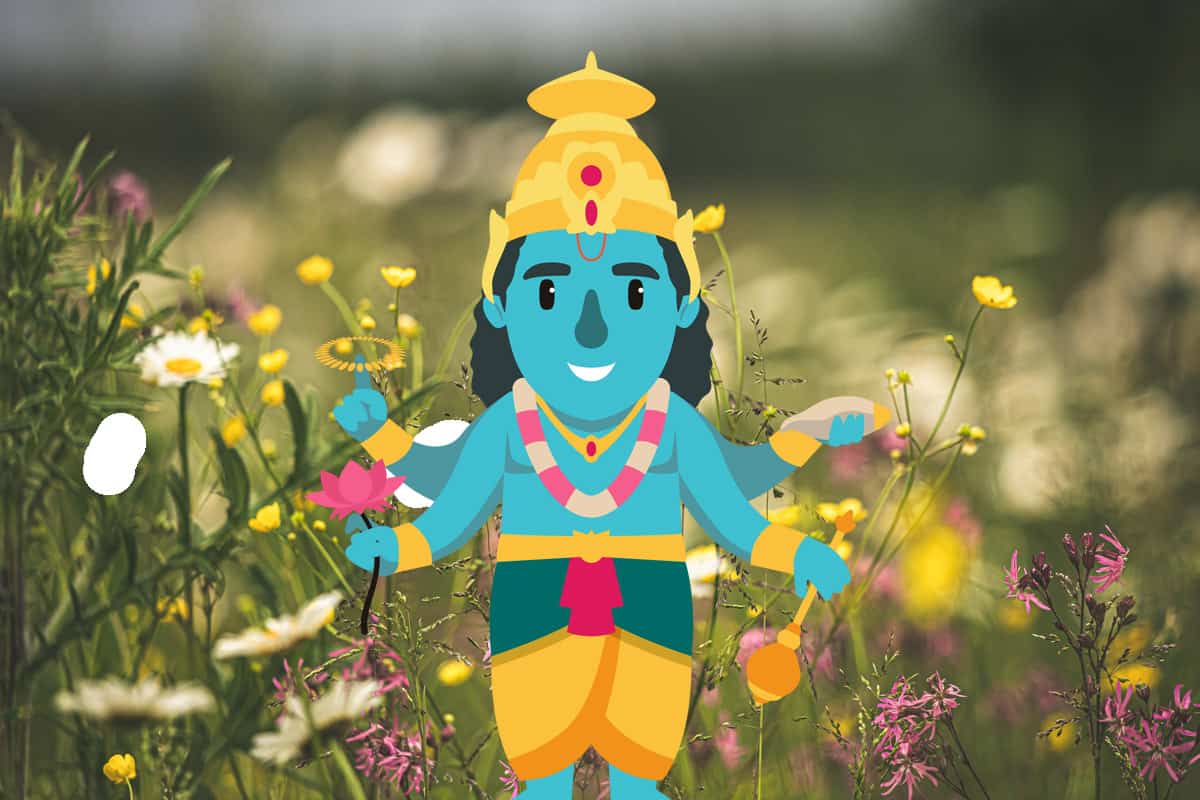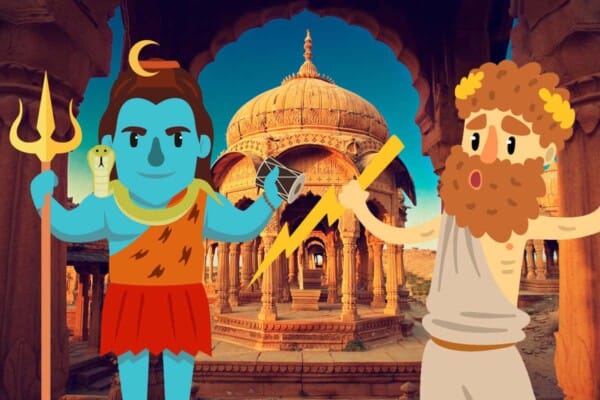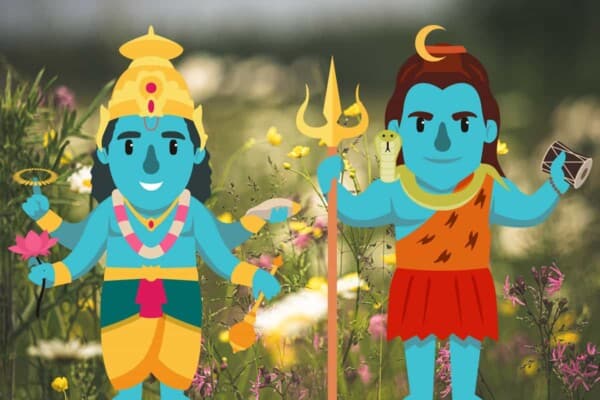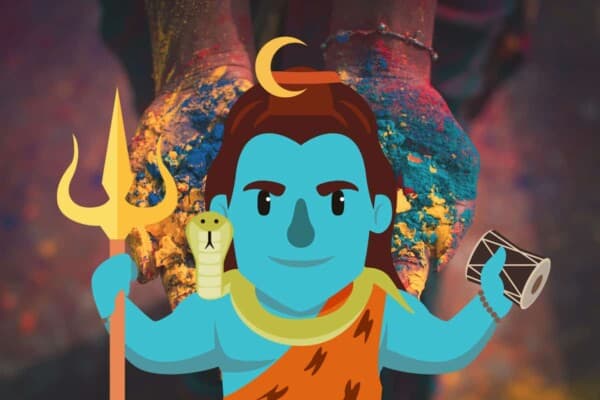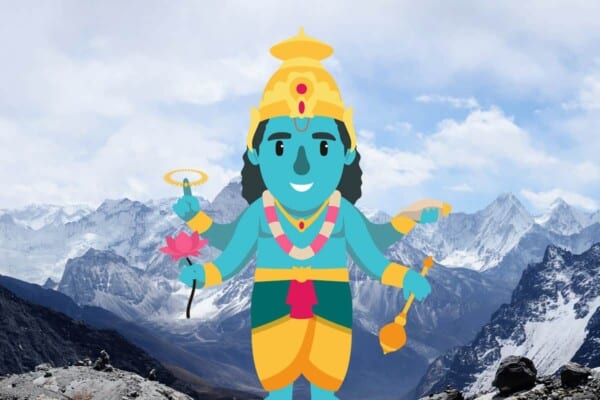Vishnu is one of the most important deities in Hindu Mythology and has a large number of followers and devotees worldwide. Furthermore, some of his reincarnations are in themselves, world renowned like Krishna and Ram.
Vishnu is considered to be the preserver of the entire universe and along with Shiva and Brahma forms a trinity of Hindu deities known as the Trimurti. His blue color is considered to be an embodiment of how he resides in the sky. However, there are several other theories as well including how blue is a depiction of Vishnu residing in the cosmic ocean held together by the holy serpent Sheshnag that has five hoods. Another theory claims that since Vishnu is infinite and formless, like the sky, blue is a metaphorical representation of the vastness of his reach.
Here is a detailed dive into what exactly gives Vishnu his signature blue hue complexion. There are several theories on why this is the case.
So Why is Vishnu Blue?
— Vishnu’s Likeness to the Sky
One of the major theories behind why Vishnu’s skin complexion is depicted as blue, has to do with his comparison to the skies and cosmos. Vishnu is said to be an infinite being with immense unlimited power and is therefore said to be a lot like the sky, which is blue in color. Therefore, every depiction of Vishnu is usually with his complexion being blue. It serves as a metaphor for how similar he is to the skies in its infinite nature and its lack of form. Despite there being an anthropomorphic representation for Vishnu very similar to a man, it goes without saying that since he is deity, several belief systems also claim that he is formless and pervades across the cosmos like an ‘aether’ of sorts. The color blue, like the skies, exemplifies this property of Vishnu.
— The Dark Complexion
Some people believe that Vishnu’s appearance with a blue complexion may also have to do with how closely related the Sanskrit words denoting blue, black and dark are. Since Vishnu is a Hindu deity with a dark complexion, many believe that his depiction with blue skin complexion might be because of that. Even Krishna, his eighth reincarnation, is depicted to be blue in most cases, even though his name itself literally means ‘dark’. There also exist a lot of depictions of Krishna as a dark skinned man, but in most representations of him, he has always been a blue skinned man. This complicated connection between the color blue and black in Sanskrit may also be seen as a contributing factor to the ambiguity. This could be another major reason for Vishnu’s blue complexion.
— Blue as a Metaphor for Vishnu’s Aura
Some believers of Vishnu have also posited that Vishnu’s blue complexion might be a metaphorical representation of his aura, which like the sky and the oceans is limitless. Even iconographically, Vishnu’s aura, the space surrounding him, is usually represented with a blue hue and may be one of the reasons why Vishnu might gain his complexion from it.
Furthermore, it is further described in some religious literature that Vaikunta, the place that Vishnu resides in, is supposed to have a bluish hue all around it. It is further described that the inhabitants of that place have a bluish appearance. All of this may be an indirect reference to how the aura of Vishnu, Vaikunta and the complexion of its inhabitants are all a reference to how the sky is blue in color and that its infinite nature is personified through the color of Vishnu’s complexion.

